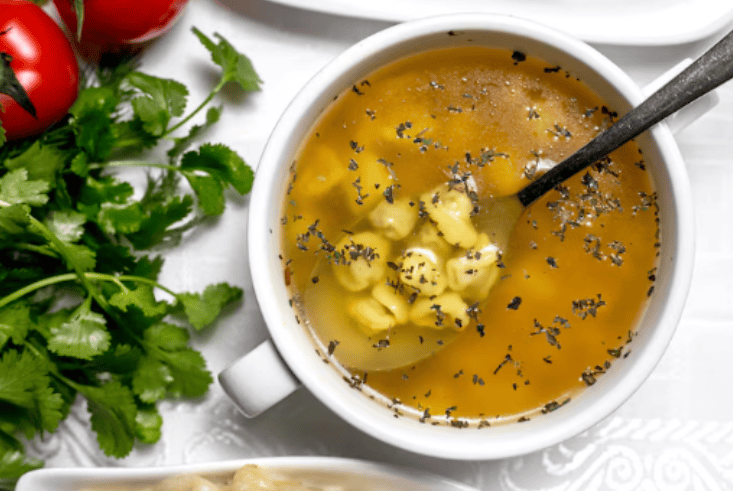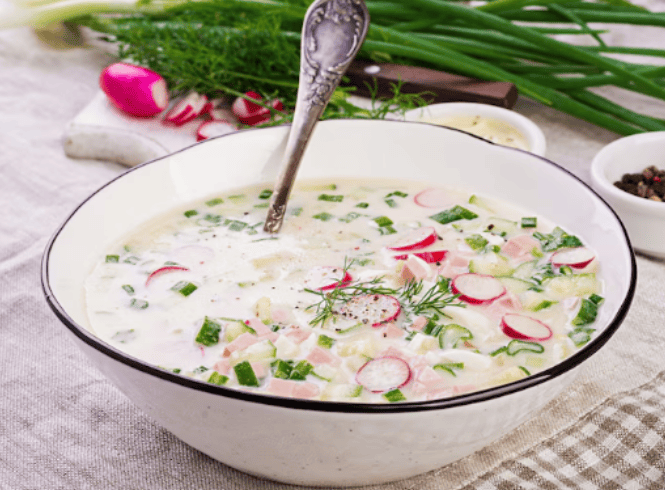Your gut does way more than just digest food. It plays a major role in your immune system, nutrient absorption, and even your mood. In fact, a healthy gut is closely linked to overall well-being.
Unfortunately, modern diets loaded with processed foods, refined sugars, and artificial ingredients can throw off the balance of gut bacteria. The result? Bloating, sluggish digestion, food sensitivities, and even chronic inflammation.
But here’s the good news—what you eat can also help heal. Certain foods contain nutrients, fiber, and beneficial compounds that actively support and repair the gut lining, reduce inflammation, and promote the growth of good bacteria.
In this article, we’ll explore 7 powerful, science-backed gut healing foods that can help you feel better from the inside out. Whether you’re dealing with digestive discomfort or just want to improve your overall health, these are the foods that heal your gut and get your system back on track—naturally.
Why Gut Health Matters
Your gut is more than just a digestion center—it’s a key player in your overall well-being. The gut is home to trillions of microbes, collectively known as the gut microbiome, which influence everything from your immune system to your mood and metabolism. When your gut microbiome is diverse and balanced, it supports efficient digestion, regulates inflammation, and even helps produce essential vitamins like B12 and K2.
On the flip side, an unhealthy gut can trigger a range of symptoms. Common signs of poor gut health include bloating, constipation, diarrhea, food intolerances, and conditions like irritable bowel syndrome (IBS). But the impact doesn’t stop there. Emerging research links gut imbalance to fatigue, brain fog, anxiety, skin problems like acne or eczema, and even autoimmune disorders.
One of the most direct ways to influence your gut microbiome health is through diet. High-fiber, plant-based foods and fermented items can promote beneficial bacteria, while processed foods, added sugars, and frequent antibiotic use can damage the gut and fuel chronic inflammation.
Understanding these connections highlights the broad gut health benefits of making mindful dietary choices. By caring for your gut, you’re laying the foundation for better energy, stronger immunity, and improved long-term health.
7 Foods That Heal Your Gut
Your gut health depends largely on what you eat. While harmful foods can damage the gut lining and disrupt your microbiome, others can help heal and nourish it. Here are seven science-backed gut healing foods that can support digestion, reduce inflammation, and help restore microbial balance.
1. Yogurt (With Live Cultures)
How it heals the gut:
Yogurt with live and active cultures is one of the most accessible probiotic foods. These beneficial bacteria help replenish the gut microbiome, especially after antibiotic use or digestive distress.
Key nutrients:
- Probiotics (Lactobacillus, Bifidobacterium strains)
- Calcium
- Protein
How to include it in your diet:
Choose plain, unsweetened yogurt labeled with “live active cultures.” Add it to smoothies, breakfast bowls, or eat it with fresh fruit. Avoid sugary versions—they can undo the benefits.
2. Kefir
How it heals the gut:
Kefir is a fermented milk drink that contains up to 30 strains of probiotics, making it more diverse than most yogurts. It supports microbial diversity and may reduce inflammation in the digestive tract.
Key nutrients:
- Probiotics
- Protein
- Vitamin B12
- Calcium
How to include it in your diet:
Drink kefir on its own, pour it over oats, or use it as a base for probiotic-rich smoothies. Look for plain, unsweetened varieties for maximum benefit.
3. Sauerkraut (Fermented Cabbage)
How it heals the gut:
This crunchy, fermented food provides both probiotics and fiber, giving it both prebiotic and probiotic effects. It helps populate the gut with good bacteria while feeding them too.
Key nutrients:
- Probiotics
- Vitamin C
- Fiber
- Vitamin K
How to include it in your diet:
Top sandwiches or grain bowls with raw, unpasteurized sauerkraut. Pasteurized versions lack live cultures, so check the label carefully.
4. Bone Broth

How it heals the gut:
Bone broth contains gelatin, collagen, and amino acids like glutamine that help repair the intestinal lining and reduce gut inflammation. It’s especially beneficial for people with leaky gut or IBS.
Key nutrients:
- Collagen
- Glutamine
- Glycine
- Electrolytes (magnesium, potassium)
How to include it in your diet:
Sip it on its own, use it as a soup base, or add it to stews and grains. Look for slow-cooked or homemade versions for the richest nutrient profile.
5. Chia Seeds
How it heals the gut:
Chia seeds are loaded with soluble fiber, which forms a gel-like consistency in your gut, promoting regularity and feeding healthy gut bacteria. This helps reduce inflammation and bloating.
Key nutrients:
- Omega-3 fatty acids
- Fiber
- Protein
- Antioxidants
How to include it in your diet:
Add to oatmeal, smoothies, or mix into water for chia pudding. Just one tablespoon provides a significant fiber boost.
6. Garlic
How it heals the gut:
Garlic is a powerful prebiotic, meaning it feeds the good bacteria already living in your gut. It also has natural antimicrobial properties that help fight off harmful microbes.
Key nutrients:
- Inulin (prebiotic fiber)
- Allicin (anti-inflammatory compound)
- Manganese
- Vitamin B6
How to include it in your diet:
Use fresh garlic in stir-fries, sauces, soups, or roasted veggies. Raw garlic offers the most potent benefits, but cooked still counts.
7. Bananas (Especially Slightly Green)
How it heals the gut:
Bananas are rich in resistant starch, especially when they’re slightly underripe. Resistant starch acts as a prebiotic, feeding beneficial bacteria and supporting a healthy colon.
Key nutrients:
- Resistant starch
- Fiber
- Vitamin B6
- Potassium
How to include it in your diet:
Eat greenish bananas as a snack, blend into smoothies, or slice over yogurt. The less ripe the banana, the more gut-healing starch it contains.
These are some of the best foods for gut health, backed by science and easy to add to your daily meals. Combined with an overall clean, fiber-rich diet, they can help restore balance, reduce digestive symptoms, and support your body from the inside out.
How to Include Gut-Healing Foods in Your Diet
You don’t need a complete lifestyle overhaul to support your gut—just a few smart daily habits. Including gut-friendly meals consistently is key to seeing real improvement over time.
Start Small and Build Consistency
Begin by adding one or two gut-healing foods each day. For example, top your morning yogurt with chia seeds or enjoy a banana with your afternoon snack. You don’t need to eat all seven every day—just keep rotating them into your routine.
Pair Fermented Foods with Meals
Fermented foods like sauerkraut, kefir, and yogurt work best when paired with whole meals. Add sauerkraut to grain bowls or sandwiches, enjoy kefir as a drink with breakfast, or serve yogurt with berries for dessert. These pairings help balance flavors and improve digestion.
Keep Meals Balanced and Whole
A successful gut health diet plan doesn’t rely on just one food group. Pair these healing ingredients with lean proteins, healthy fats, and plenty of colorful vegetables to feed your gut and your whole body. Avoid processed, sugary foods that can undo the progress.
Remember, gut healing takes time. By adding these ingredients into your meals regularly, you’ll support long-term digestive health and feel the difference from the inside out.
Foods to Limit for Gut Health
Just as certain foods can heal your gut, others can do the opposite. If you’re working to improve your digestion and reduce inflammation, it’s just as important to know which foods to scale back.
Added Sugars and Artificial Sweeteners
Too much sugar feeds harmful gut bacteria and yeast, disrupting microbial balance. Artificial sweeteners like sucralose or aspartame may also negatively affect the gut microbiome by reducing beneficial bacteria.
Processed and Packaged Foods
Many processed foods contain additives, preservatives, and emulsifiers that have been linked to digestive distress and microbial imbalance. These are among the most common foods bad for gut health because they’re often low in fiber and high in refined ingredients.
Excess Alcohol
Drinking too much alcohol can increase gut permeability (a.k.a. “leaky gut”) and promote inflammation. It may also reduce the diversity of good bacteria, which is essential for gut resilience.
Highly Refined Carbs
White bread, pastries, and sugary cereals spike blood sugar and offer little to no fiber. These gut inflammation foods can worsen bloating, sluggish digestion, and even fuel the growth of harmful bacteria.
You don’t have to cut these foods out entirely—but limiting them and focusing more on whole, gut-friendly ingredients can make a big difference in your digestive health.
FAQs About Gut Healing Foods
How long does it take to heal the gut with food?
Gut healing isn’t instant—it depends on your current gut health, diet, and lifestyle. Some people notice improvements in bloating and digestion within a few weeks, while deeper healing may take several months. Consistency is key. Regularly eating gut healing foods like yogurt, bone broth, and fermented veggies can make a real difference over time.
Do I need probiotic supplements if I eat gut-friendly foods?
Not always. If you eat a variety of probiotic-rich foods (like kefir, sauerkraut, and yogurt) and prebiotic foods (like garlic and chia seeds), you may not need supplements. However, in some cases—like after antibiotics or during gut distress—a high-quality probiotic can support natural gut healing. It’s best to speak with your healthcare provider for personalized guidance.
Are fermented foods safe for everyone?
For most people, yes. But those with histamine intolerance, SIBO (Small Intestinal Bacterial Overgrowth), or sensitive digestive systems may need to be cautious. Start small and observe how your body reacts. If you’re unsure, consult a doctor or dietitian before adding fermented foods to your diet.
Can gut health affect mood?
Absolutely. The gut and brain are closely connected through the gut-brain axis. Poor gut health can contribute to anxiety, low mood, and brain fog. On the flip side, a balanced gut can support mental clarity and emotional well-being—another reason to embrace gut healing foods every day.
Bottom Line
Taking care of your gut is one of the smartest things you can do for your overall health. From digestion and immunity to mood and energy, a balanced gut supports it all.
The good news? You don’t need to overhaul your entire diet to start healing. By simply adding one or two foods that heal your gut—like yogurt, chia seeds, or fermented vegetables—each day, you’re already taking powerful steps in the right direction.
Consistency matters more than perfection. Over time, these small changes can reduce inflammation, improve digestion, and boost your overall sense of well-being.
So go ahead—start simple, stay consistent, and enjoy the real-life benefits of choosing the best foods for gut health every day.
